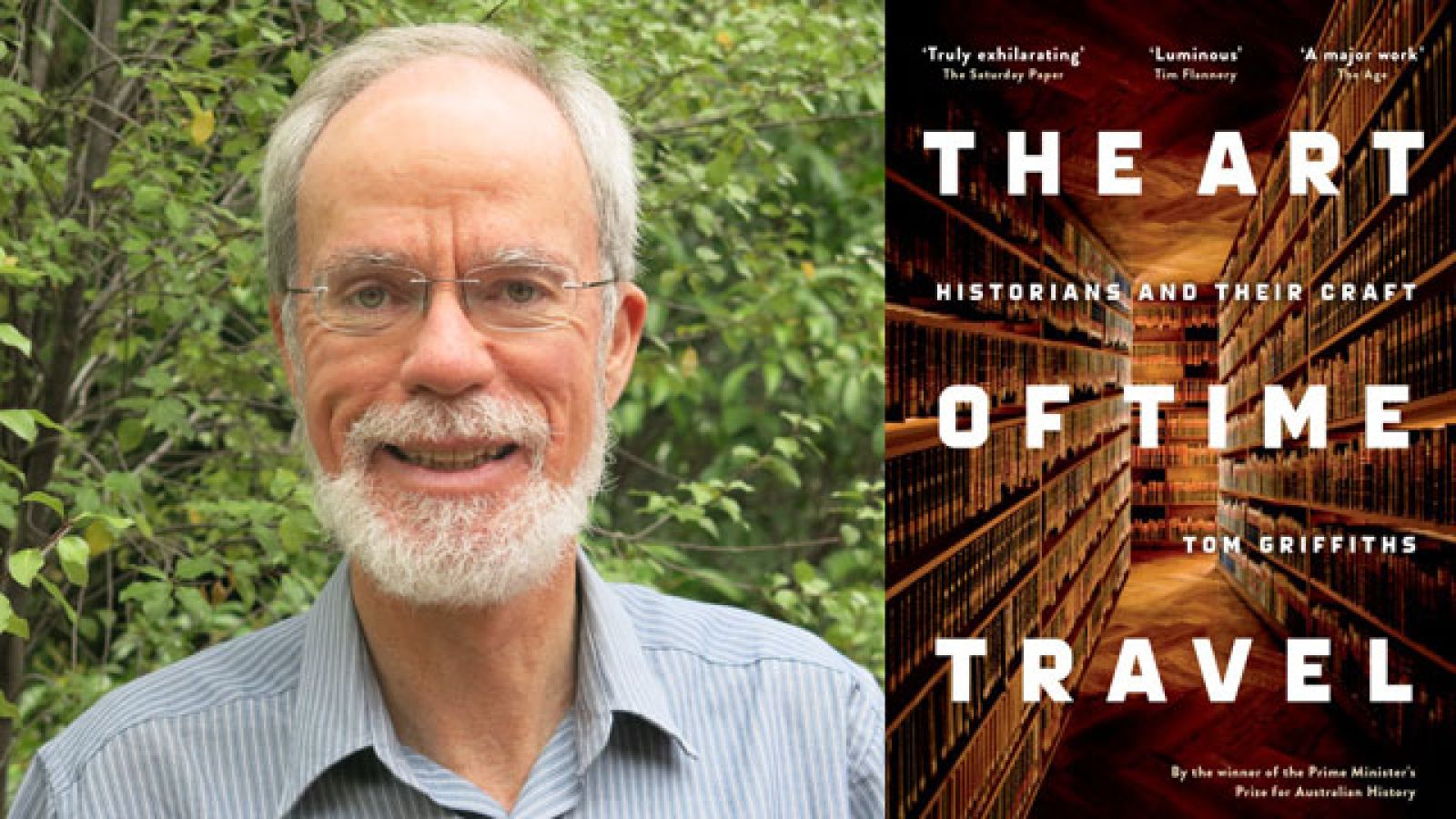ANU scholar wins major prize for book on historians and their craft

Prof. Tom Griffiths says it’s heartening to write a scholarly book and find it received by a wide audience.
An historian at The Australian National University whose latest book has earned one of Australian history’s most coveted prizes, says he’s touched that his work has resonated widely.
Professor Tom Griffiths received the 2017 Ernest Scott Prize for his The Art of Time Travel: Historians and their Craft (Black Inc, 2016), and was shortlisted for a 2017 NSW Premier’s Literary Award.
“The response is very rewarding,” Professor Griffiths says beneath photos of Australian and Antarctic landscapes in his HC Coombs Building office.
“It’s so heartening to write a scholarly book and find it received by a wide audience.
“I’ve received lots of letters, about one a day since the book was published last July, from readers who’ve read it carefully and deeply and are responding with such thoughtful observations of their own.”
He says those correspondents are not always historians, but people who want to understand the way in which Australian history has changed in the 20th century and what makes it an exciting discipline.
“The book is about the writing of history – historiography – and it looks over the shoulder of scholars at work as they reconstruct the past.”
“I confess that I didn’t really expect that to reach such a broad readership. I essentially wrote it for my fellow historians, for people who are passionate about the teaching of history, or who love reading it, and what I’ve found is that that’s a larger group of people than I expected.”
The idea for the book germinated more than a decade ago. Writing took two years.
“I realised I wanted to write about history as a scholarly art, as a dedicated craft, and I chose a selection of historians who’ve interested or inspired me.”
Among 14 historians he chose were Inga Clendinnen, Judith Wright, Henry Reynolds, Geoffrey Blainey and Greg Dening.
“I wanted to show that disciplined imagination was very important in the writing of fine history, that being artistic in the way you tell stories about the past is not inconsistent with being a rigorous scholar,” Professor Griffiths says.
“I wanted to show the imagination at work in a body of non-fiction, scholarly writing, and to reclaim a genre of Australian literature.
“I wanted to say ‘look at these people, they’re great historians and they’re also fine writers whose books deserve recognition as literature,’” he explains.
Based in the ANU School of History, Professor Griffiths writes most effectively in the early mornings, resisting interruptions from the online world as best he can.
He’s looking forward to being able to share his love of history as a keynote speaker at the NSW History Teachers’ Association annual conference in July.
“I have the greatest admiration for teachers of history in schools, and anything we in universities can do to help them and encourage them and strengthen their work is a marvellous opportunity.”